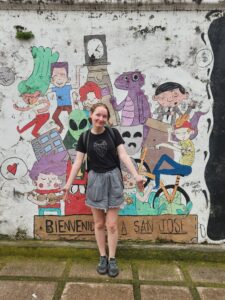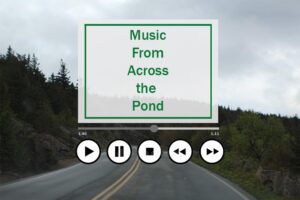Just before the turn of the first millennium, a hermit named Pelagius claimed to see a light coming from a forgotten Roman tomb. It was designated the site of the remains of St. James, one of Jesus Christ’s apostles. Word spread quickly and the site soon became the destination of Catholic pilgrims from across Europe. Construction of the current cathedral began in 1075 under the ruling of Alfonso VI of Castile. It was consecrated by Alfonso IX of Leon in 1211. The Camino de Santiago is still a popular journey for Catholics and other adventurers alike. Every year, over 200,000 pilgrims trek 100 kilometers from Saint-Jean-Pied-de-Port in southwestern France to Santiago.
My first week in Santiago I was staying at Blanco Albergue, a hostel in Santiago popular with pilgrims finishing the Camino. Hostel life in Europe, or at least Portugal and Spain, is unique compared to my experiences in North America and Australia. Over the past week, it’s been rare to meet more than two people from the same country. There have been travelers from France, Belgium, Italy, the U.K., Korea, China and Quebec. English is surprisingly unreliable as a common language here, with most people resorting to broken Spanish. My Spanish skills are still dragging, and it’s been entertaining being involved in conversations with everyone trying to figure out what the others are saying.
I’ve also found my way into conversations I’d be unlikely to find anywhere else. I spent over an hour comparing Canadian, Belgian and American politics with my new friends, Laurent and Matthias, from Quebec and Belgium, respectively. I was expecting to be grilled on our current cesspool of politics, but both their attitudes were more fascination and sympathy than anything else. There was also an unexpected degree of appreciation for Donald Trump’s lunacy. Matthias expressed his gratefulness that political corruption is so much more visible to outsiders with someone as untamed as Trump running the country, a nuance that is hard to appreciate from within.
I was able to attend my first class this morning, and upon sitting down and looking at the chalkboard, I discovered that this class, along with all my other classes, will be taught fully in Galician. A language independent of Spanish, Galician branched away from Portuguese about 900 years ago, and still shares many of the same components. According to speakers of Portuguese, Galician sounds like Portuguese spoken by a Spaniard. I’m going to finish this semester with a wacky accent.
It took me a week, but I managed to sign a lease for an apartment. Located in the heart of the old town of Santiago, the building is part of the UNESCO World Heritage Site protecting the Cathedral of Santiago and the surrounding town. It’s a surreal feeling, living in a structure centuries older than anything in the United States. The world seems to move around cities as old as this one. The people change, but without the signs of tourist shops lining the streets, the core of Santiago has gone untouched since before the invention of the printing press.








